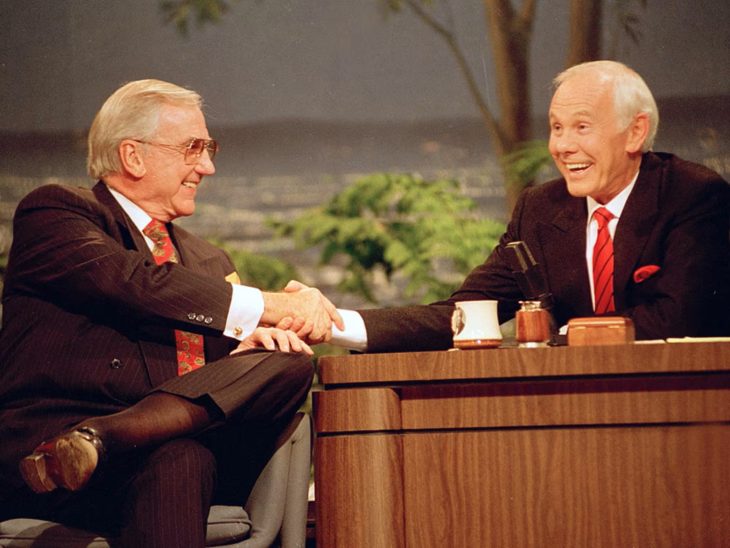
Word of the Day: Voluble
Today’s word of the day, thanks to Merriam-Webster, is voluble. Voluble is an adjective that means “easily rolling or turning” or “characterized by ready or rapid speech” (https://www.merriam-webster.com/dictionary/voluble). M-W adds, “Voluble traces back to the Latin verb volvere, meaning “to set in a circular course” or “to cause to roll.” Another volvere descendant, volume, can also be a help in remembering voluble’s meaning, not because someone described as voluble speaks at a loud volume, per se, but because they have volumes to say” (ibid.).
Etymonline.com goes a little deeper into the etymology. It says that the word appears in the language in the “late 14c., ‘able to turn, revolving with ease,’ from Latin volubilis ‘that turns around, rolling, flowing,’ figuratively (of speech) ‘fluent, rapid,’ from volvere ‘to turn around, roll’ (from PIE root *wel- (3) ‘to turn, revolve’). Also in Middle English ‘liable to constant change’ (early 15c., now obsolete). The meaning ‘fluent, talkative, characterized by great flow of words’ is recorded in English from 1580s” (https://www.etymonline.com/search?q=voluble). Now, you might have seen that PIE (Proto-IndoEuropean) root *wel-, meaning to turn, revolve, and thought to yourself, “Ah! That must be the root of the modern word “wheel.” But you’d be wrong. Wheel comes “from PIE *kw(e)-kwl-o- ‘wheel, circle,’ suffixed, reduplicated form of root *kwel- ‘revolve, move round; sojourn, dwell’” (https://www.etymonline.com/search?q=wheel).
Not surprisingly, there is a noun form of the word, volubility, which entered the language in the “1580s, from French volubilité (16c.) or directly from Latin volubilitatem (nominative volubilitas) ‘a rapid turning,’ figuratively ‘fluency (of speech)….’ Used in 1570s with a sense of ‘mental versatility’” (https://www.etymonline.com/search?q=voluble). The –ility is a derivational suffix, deriving a noun from an adjective; we talked about the difference between compounding and derivation a few days ago.
On this date in 1992, Johnny Carson (1925-2005) made his final appearance as the host of The Tonight Show. Carson got his in the entertainment field in radio after serving in the navy during World War II and using the GI Bill to get a degree in radio and speech from the University of Nebraska-Lincoln, having written a thesis on writing comedy for radio (https://en.wikipedia.org/wiki/Johnny_Carson). He did some radio and local TV, and then was asked to become a writer for Red Skelton (if you’ve never heard that name, Red Skelton was big in burlesque, vaudeville, radio, and finally television). One night, an hour before Skelton’s live show was supposed to air, Skelton got knocked out during rehearsal, and Carson filled in for him. “As a result of Carson’s performance, CBS created the primetime variety program The Johnny Carson Show, a traditional potpourri of comedy, music, dance, skits, and monologues” (https://en.wikipedia.org/wiki/The_Johnny_Carson_Show).
When the variety show was cancelled after just one season, Carson moved to New York and took over hosting duties for a daytime game show. It had started out as a primetime game show entitled Do You Trust Your Wife?, hosted by Edgar Bergen (another huge name in comedy back in the old days). Carson was the host when the title was changed to Who Do You Trust? And stayed with until he was given the opportunity to take over The Tonight Show. He took it over from Jack Paar, who hosted it from 1957 to 1962. He had taken it over from the originator of the show, Steve Allen, who hosted it from 1954 to 1957.
Here’s a brief and partial history of Carson from the wiki: “By the mid-1970s Tonight was the most profitable show on television, making NBC $50 to $60 million each year. Carson influenced the scheduling of reruns (which typically aired under the title The Best of Carson) in the mid-1970s and, in 1980, the length of each evening’s broadcast, by threatening NBC with, in the first case, moving to another network, and in the latter, retiring altogether.
“In order to work fewer days each week, Carson began to petition network executives in 1974 that reruns on the weekends be discontinued, in favor of showing them on one or more nights during the week. In response to his demands, NBC created a new comedy/variety series to feed to affiliates on Saturday nights that debuted in October 1975, Saturday Night Live.
“In 1980, Carson renewed his contract with the stipulation that the show lose its last half-hour. On the last 90-minute show (September 12, 1980), Carson explained that by going to an hour, the show would feel more fast-paced, and have a greater selection of guests” (https://en.wikipedia.org/wiki/The_Tonight_Show_Starring_Johnny_Carson).
Carson had some regular sketches, like Carmac the Magnificent, but for 30 years what sustained him as the host of the most popular late-night show on television was his voluble nature. He could seemingly talk to anyone about anything, although he rarely engaged in anything political, and make that anything entertaining for his audience. You may hear some urban legends about risqué things he said to Arnold Palmer, or his wife, or to Zsa Zsa Gabor, but those stories are mostly not true. He was, at least on his show, a gentleman.
Today’s image is of Johnny Carson with his longtime sidekick Ed McMahon during his final episode, May 22, 1992 (https://www.today.com/popculture/remembering-johnny-carson-who-retired-20-years-ago-today-787205).